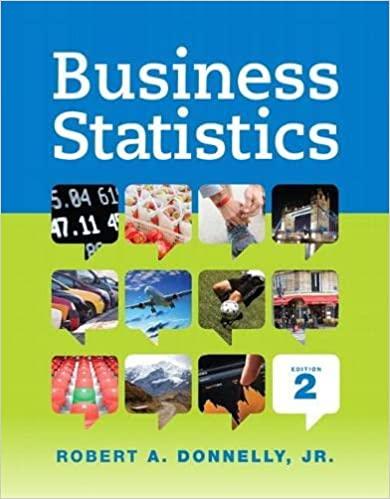Negative equity (also known as being underwater) refers to a scenario where the market value of a
Question:
Negative equity (also known as being “underwater”) refers to a scenario where the market value of a residence is worth less than the outstanding balance on the mortgage for that home. Suppose the Federal Housing Administration (FHA), which is the government agency charged with supporting the home financing market, would like to test the hypothesis that the proportion of home mortgages with negative equity in Florida is more than 10% higher than the national proportion. A random sample of 180 mortgages from Florida found that 67 were underwater. A random sample of 190 mortgages across the United States found that 42 were underwater.
a. Using α = 0.05, perform this hypothesis test for the FHA.
b. Construct a 95% confidence interval to estimate the difference in the proportion of underwater mortgages for these two populations. Interpret your result.
c. Determine the p value and interpret the results.
Step by Step Answer:






